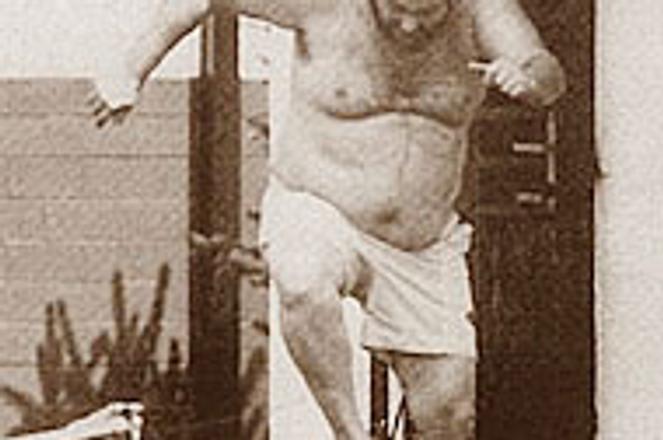LEXA, released in July 1999 by the hair of his chinny-chin-chin.photo: Marek Veleek - SME
BEFORE the Slovak police huff and puff and blow Vladimír Meeiar's door down (again) to ask him where he got the money to refurbish his villa, someone should remind them that the little pigs - Meeiar era criminals - have little to fear from the big bad wolf until he grows some real teeth.
Pardon the fairytale allusion, but the fraud squad's 'discovery' this month that Meeiar may have spent as much as Sk41 million ($860,000) on his post-1998 Elektra residence has all the elements of a twisted Aesop fable, complete with the moral at the end.
The problem is that the wolf in this tale (the Dzurinda government), for all his heavy breathing, is afraid of the little pigs, such as Meeiar and former secret service head Ivan Lexa. The fear resides in what might come out, if the pigs had their house destroyed and decided to tell what they knew.
On the other hand, having cast itself in pre-election promises as a wolf, the government is bound to look the part, feigning great pursuit while achieving nothing at all.
The first house, which was built of straw and appeared easy to blow down, belonged to Lexa and his role in the 1995 kidnapping of the former president's son. But Lexa, after being taken into custody in 1999, was never formally interrogated by the police, and after being released from custody after three months for health reasons (!) was allowed to flee the country.
The next house, built of sticks, belonged to the privatisation piggies, who had amassed great assets but in many cases not even paid the pittance they were charged by Meeiar's FNM privatisation agency.
The FNM, after muscular promises, announced in September 2001 that while it had filed challenges in 47 cases, only one had been accepted by the courts, and that it was abandoning court challenges of Meeiar-era state property sales altogether.
The brick house, of course, belonged to Meeiar, but despite blasting the three-time former PMs door down in 2000 to make him answer charges of abuse of power, the police never seriously threatened the structure.
The Dzurinda government offers various explanations for its failures. The most common target of abuse is the courts, with the story going that having had their houses summarily blown down, the piggies were rescued by corrupt judges.
In November 2001, the Justice Ministry proposed that disciplinary proceedings be launched against judge 1udmila Hatalová of the Bratislava III district court for conspicuous failure to do anything with four Lexa case files that had been on her desk for a year.
Hatalová is an easy target, because in an apparent conflict with her boss, chief justice Boris Tóth, she refused to open the files at all in 2001 because she felt Tóth had unfairly burdened her with the court's dirty (and dangerous) work. She later massaged an eye operation into a three-month sick leave, further pushing back the justice process, before on May 19 returning the first of the Lexa cases for "further investigation".
But what was the wolf was doing while Hatalová was neglecting her job?
The same question arises over Meeiar's Elektra financing, which the police apparently knew of in 1999 under former fraud division boss Jozef Stieranka, but chose not to investigate.
Despite the recent snapping and growling, it's clear that the piggies are home safe, and that even if the Dzurinda government ever meant seriously its promise to investigate the most notorious crimes of the Meeiar era, it quickly discovered the prudence of leaving the past alone.
The moral, in disillusioned Slovakia, is that politicians neither pigs nor wolves be, and that a house once built takes more than words to destroy. 'Twere courage and honesty that were lacking, not information 'discovered' four months before the next little piggies build their homes.


